| Portrait | Office | Name | Term | Party | Undersecretaries |
|---|
 | Prime Minister | Giulio Andreotti | 30 July 1976 – 13 March 1978 | | Christian Democracy | Franco Evangelisti (DC)
Piergiorgio Bressani (DC)
Gian Aldo Arnaud (DC)
Ignazio Vincenzo Senese (DC) |
|
|---|
 | Minister of Foreign Affairs | Arnaldo Forlani | 30 July 1976 – 13 March 1978 | | Christian Democracy | Franco Foschi (DC)
Luciano Radi (DC) |
 | Minister of the Interior | Francesco Cossiga | 30 July 1976 – 13 March 1978 | | Christian Democracy | Clelio Darida (DC)
Nicola Lettieri (DC)
Giuseppe Zamberletti (DC)
(until 15 September 1977) |
 | Minister of Grace and Justice | Francesco Paolo Bonifacio | 30 July 1976 – 13 March 1978 | | Christian Democracy | Renato Dell'Andro (DC)
Edoardo Speranza (DC) |
 | Minister of Budget and Economic Planning | Tommaso Morlino | 30 July 1976 – 13 March 1978 | | Christian Democracy | Vincenzo Scotti (DC) |
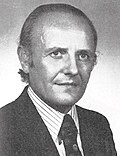 | Minister of Finance | Filippo Maria Pandolfi | 30 July 1976 – 13 March 1978 | | Christian Democracy | Giuseppe Azzaro (DC)
Carmelo Santalco (DC)
Rodolfo Tambroni Armaroli (DC) |
 | Minister of Treasury | Gaetano Stammati | 30 July 1976 – 13 March 1978 | | Christian Democracy | Lucio Abis (DC)
Renato Corà (DC)
Antonio Mario Mazzarrino (DC) |
 | Minister of Defence | Vito Lattanzio | 30 July 1976 – 18 September 1977 | | Christian Democracy | Giuseppe Caroli (DC)
Carlo Pastorino (DC)
Amerigo Petrucci (DC) |
 | Attilio Ruffini | 18 September 1977 – 13 March 1978 | | Christian Democracy |
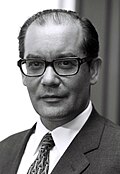 | Minister of Public Education | Franco Maria Malfatti | 30 July 1976 – 13 March 1978 | | Christian Democracy | Carlo Buzzi (DC)
Franca Falcucci (DC)
Giovanni Del Rio (DC) |
 | Minister of Public Works | Antonino Pietro Gullotti | 30 July 1976 – 13 March 1978 | | Christian Democracy | Antonio Laforgia (DC)
Pietro Padula (DC) |
 | Minister of Agriculture and Forests | Giovanni Marcora | 30 July 1976 – 13 March 1978 | | Christian Democracy | Arcangelo Lobianco (DC)
Roberto Mazzotta (DC)
(until 24 February 1977)
Giuseppe Zurlo (DC)
(since 24 February 1977) |
 | Minister of Transport | Attilio Ruffini | 30 July 1976 – 18 September 1977 | | Christian Democracy | Gianni Fontana (DC)
Costante Degan (DC) |
 | Vito Lattanzio | 18 September 1977 – 13 March 1978 | | Christian Democracy |
 | Minister of Merchant Navy | Francesco Fabbri | 30 July 1976 – 20 January 1977 | | Christian Democracy |
 | Attilio Ruffini (ad interim) | 20 January 1977 – 18 September 1977 | | Christian Democracy |
 | Vito Lattanzio (ad interim) | 18 September 1977 – 13 March 1978 | | Christian Democracy |
 | Minister of Post and Telecommunications | Vittorino Colombo | 30 July 1976 – 13 March 1978 | | Christian Democracy | Giuseppe Antonio Dal Maso (DC)
Elio Tiriolo (DC) |
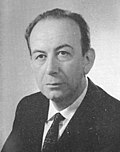 | Minister of Industry, Commerce and Craftsmanship | Carlo Donat-Cattin | 30 July 1976 – 13 March 1978 | | Christian Democracy | Enzo Erminero (DC)
Gianuario Carta (DC) |
 | Minister of Health | Luciano Dal Falco | 30 July 1976 – 13 March 1978 | | Christian Democracy | Ferdinando Russo (DC)
Giuseppe Zurlo (DC)
(until 24 February 1977) |
 | Minister of Foreign Trade | Rinaldo Ossola | 30 July 1976 – 13 March 1978 | | Independent | Luigi Michele Galli (DC) |
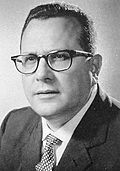 | Minister of State Holdings | Antonio Bisaglia | 30 July 1976 – 13 March 1978 | | Christian Democracy | Francesco Bova (DC)
Angelo Castelli (DC) |
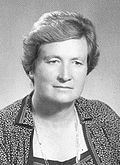 | Minister of Labour and Social Security | Tina Anselmi | 30 July 1976 – 13 March 1978 | | Christian Democracy | Nino Cristofori (DC)
Francesco Smurra (DC)
Baldassare Armato (DC)
Manfredi Bosco (DC) |
 | Minister of Cultural and Environmental Heritage | Mario Pedini | 30 July 1976 – 13 March 1978 | | Christian Democracy | Giorgio Postal (DC)
Giorgio Spitella (DC) |
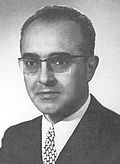 | Minister of Tourism and Entertainment | Dario Antoniozzi | 30 July 1976 – 13 March 1978 | | Christian Democracy | Carlo Sangalli (DC) |
|
|---|
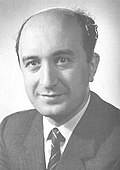 | Minister for Extraordinary Interventions in the South
(without portfolio) | Ciriaco De Mita | 30 July 1976 – 13 March 1978 | | Christian Democracy |
























